#globalconflicts
Explore tagged Tumblr posts
Text

The ongoing wars around the world are not only causing political and security instability but also have profound economic impacts, particularly on transportation costs, agriculture exports and imports, and the prices of raw materials and food industries, including spices. Below is an overview of how these conflicts are affecting these sectors:
1. Transportation Costs: The Russia-Ukraine war, one of the most severe current conflicts, has disrupted key shipping routes in the Black Sea. This disruption has led to a sharp increase in transportation costs as ships are forced to take longer, safer routes. The rise in fuel and insurance costs has also contributed to the overall surge in logistics expenses.
2. Agriculture Exports and Imports: Ukraine, as one of the world's largest exporters of wheat and corn, has been heavily impacted by the war with Russia. The conflict has reduced agricultural production and severely restricted exports, leading to global food shortages. Countries that rely on Ukrainian grain are facing significant challenges in securing alternative supplies.
3. Agricultural Prices: The disruption in Ukraine’s agricultural supply has driven up global food prices. Countries like India and Brazil, also major agricultural exporters, are facing increased production costs due to the shortage of fertilizers from Russia and Belarus, further pushing up food prices worldwide.
4. Fertilizer Prices: Russia and Belarus are critical suppliers of key fertilizer components such as potash, nitrogen, and phosphorus. The war and ensuing sanctions have disrupted these supplies, causing fertilizer prices to spike globally. This has increased production costs for farmers, affecting crop yields and driving up food prices.
5. Raw Materials for Manufacturing: The conflicts have disrupted the supply of raw materials like metals and energy resources. Manufacturing industries, especially steel, aluminum, and energy, have seen their production costs soar due to raw material shortages. For instance, the war in Sudan, a country rich in mineral resources, has hampered mining activities, affecting the global supply of these materials.
6. Food and Spice Industries: Nations like India, which are major producers of spices such as pepper and cinnamon, are also facing higher costs due to fertilizer shortages and increased transportation expenses stemming from global conflicts. This has resulted in rising prices for spices and other food products in international markets, impacting both consumers and businesses.
From Europe’s Russia-Ukraine war to Africa’s conflicts in Sudan, these wars are causing widespread disruptions in global supply chains. They not only affect transportation logistics but also increase costs and limit the availability of agricultural products, fertilizers, raw materials, and food items. These sectors are grappling with higher production costs, material shortages, and challenges in maintaining stable output amid such global unrest.
#GlobalConflicts#WarImpact#AgricultureDisruption#SupplyChainCrisis#FoodIndustry#TransportationCosts#RisingFoodPrices#FertilizerShortage#RawMaterialCrisis#EconomicImpact#GlobalTrade#SpiceMarket#CommodityPrices#LogisticsChallenges#AgriculturalCrisis
#GlobalConflicts#WarImpact#AgricultureDisruption#SupplyChainCrisis#FoodIndustry#TransportationCosts#RisingFoodPrices#FertilizerShortage#RawMaterialCrisis#EconomicImpact#GlobalTrade#SpiceMarket#CommodityPrices#LogisticsChallenges#AgriculturalCrisis
0 notes
Text
Navigating Global Conflicts with Teens
Explore the importance of open dialogue and emotional regulation in discussions about global conflicts with teenagers. Empower the next generation with empathy and understanding. Read more on VerveLifeHUB.com
#HowToTalkAboutWar#TalkAboutWar#TalkAboutWarWithChild#GlobalConflicts#ParentingTips#Teenagers#EmpathyBuilding#OpenDialogue#EmotionalRegulation#CriticalThinking#GlobalAwareness#ResilienceDevelopment
0 notes
Text
UK Champions Climate Action at UN Security Council

Climate Change's Role in Adding to Global Conflicts
In a significant address at the UN Security Council, Ambassador Barbara Woodward shed light on the intricate relationship between climate change, environmental degradation, biodiversity loss, and global conflicts. The statement emphasized the urgent need for a coordinated international response to these interlinked challenges that threaten international peace and security.
The Triple Threat: Climate Change, Conflict, and Food Security
Ambassador Woodward pointed out the vicious cycle where climate change and environmental issues contribute to conflicts and food insecurity, further destabilizing regions already under the strain of humanitarian needs. With an eye on the future, she underscored the dire consequences of inaction, both on the environment and global security landscape. A Tripartite Approach to Mitigating Crisis The UK's statement outlined three strategic approaches to combat these challenges: - Early Action on Food Security: Highlighting initiatives from last year's Global Food Security Summit, the UK's commitment to the Resilience and Adaptation Fund aims to bolster climate adaptation and anticipatory actions. This effort seeks to enhance resilience among the most vulnerable, particularly in conflict-affected regions. - Investment in Sustainable Agriculture: The call for innovation in sustainable, climate-resilient food production was clear. The UK champions scientific advancement accessible to all, especially smallholder farmers, through support for organizations like CGIAR and initiatives like the Gilbert Initiative. - Holistic and Integrated Solutions: Emphasizing the importance of a unified approach, the UK urged support for integrating climate impacts into conflict risk assessments and ensuring climate finance is conflict-sensitive. This comprehensive strategy involves humanitarian, development, peacebuilding, and climate actors working in concert to address these multifaceted issues.
The Role of the UN and International Community
Woodward's statement recognized the unique position of the UN, particularly its Climate Security advisers, to spearhead efforts in coordinating climate, food security, and peace initiatives. She advocated for the Security Council's support in fostering a coherent response to these global challenges, reflecting the collective concern among UN members. In Conclusion The UK's stance at the UN Security Council meeting underscores the critical need for global cooperation in addressing the intertwined issues of climate change, environmental degradation, and security. Ambassador Woodward's call to action serves as a clarion call for the international community to adopt an integrated approach to safeguarding peace, security, and sustainability for future generations. Sources: THX News, Foreign, Commonwealth and Development Office & Dame Barbara Woodward DCMG OBE. Read the full article
0 notes
Text
Protecting Allies and Strengthening Security: Senate's Battle for Aid and Defense #bordersecurity #counterterrorismefforts #defensespending #globalconflicts #immigrationenforcement #Israelaid #MilitaryAid #missiledefenseprograms #nationalsecuritypriorities #Russianbackedseparatists #Ukraineaid #Ukrainianforces #USforeignpolicy
#Politics#bordersecurity#counterterrorismefforts#defensespending#globalconflicts#immigrationenforcement#Israelaid#MilitaryAid#missiledefenseprograms#nationalsecuritypriorities#Russianbackedseparatists#Ukraineaid#Ukrainianforces#USforeignpolicy
0 notes
Text
The Best Investment Options During Global Conflicts and Cold Wars


1. Why is it important to invest during global conflicts and cold wars? 2. How can alliances and partnerships help secure your investments? 3. What are the best investment options during global conflicts and cold wars? 4. How can defense stocks be a stable investment during global conflicts? 5. The importance of investing for the long term during cold wars Case Study Q: What is the impact of international peace on modern security and trade? Q: How does international peace affect supply chains? Q: What role does international peace play in the overall strategy of nations? Q: Is international peace influenced by geopolitical tensions? Q: How does international peace impact the resilience of economies? Q: What is the role of international organizations in promoting international peace? Q: How does international peace contribute to the security of cyberspace? Q: Can the outbreak of conflicts impact international trade? Q: What is the relationship between international peace and the deployment of new technologies? Q: How does international peace impact policymaking? Global conflicts and cold wars can create economic and geopolitical uncertainties that can significantly impact investments. However, it is important to consider investing during these periods as it can offer various advantages and opportunities for financial growth and stability.
1. Why is it important to invest during global conflicts and cold wars?
1.1 Safeguarding your investments During times of global conflicts and cold wars, there is a higher risk of economic and political upheaval. By investing in secure assets, you can better safeguard your investments and minimize potential losses. 1.2 Building resilience in your portfolio Investing during global conflicts and cold wars allows you to build resilience in your portfolio. Diversifying your investments across different sectors and asset classes can help mitigate risks and protect your wealth. 1.3 Strengthening your economy amidst crisis Investments during global conflicts and cold wars can strengthen your economy by providing stability and growth. Your investments contribute to the overall Gross Domestic Product (GDP) and support economic development despite the challenging circumstances.


2. How can alliances and partnerships help secure your investments?
2.1 Investing in sectors with strong alliances Choosing investment options in sectors that have strong alliances and partnerships can help secure your investments. Companies that collaborate internationally and have a strong network of allies are more likely to weather geopolitical uncertainties. 2.2 Leveraging the power of international cooperation International cooperation is crucial during times of global conflicts and cold wars. By investing in industries that heavily rely on export and benefit from international cooperation, you can capitalize on the stability and growth that these alliances provide. 2.3 The role of the private sector in safeguarding investments The private sector plays a vital role in safeguarding investments during global conflicts and cold wars. By investing in companies that prioritize research and development, intellectual property protection, and have the capacity to withstand economic shocks, you can secure your assets.
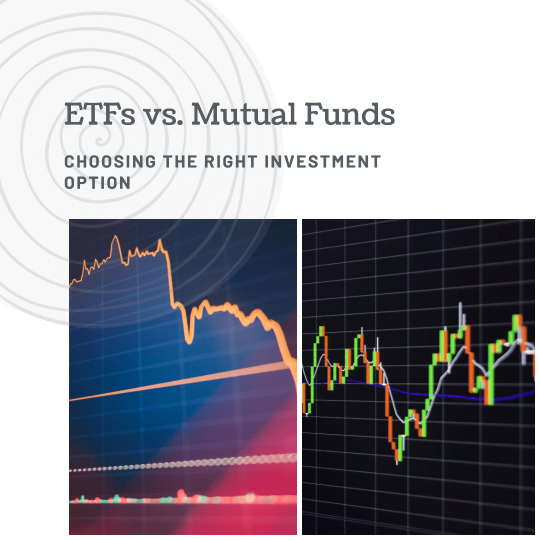
3. What are the best investment options during global conflicts and cold wars?
3.1 Investing in precious metals like Gold and Silver Precious metals like Gold and Silver are considered safe-haven assets during times of geopolitical tensions. These metals have a long history of retaining their value and can act as a hedge against inflation and currency fluctuations. 3.2 Real estate as a secure investment during geopolitical tensions Real estate investments are often viewed as secure during global conflicts and cold wars. Investing in properties can provide both financial stability and rental income, making it an attractive option for long-term investors. 3.3 Healthcare stocks as a defensive investment Healthcare stocks can be a defensive investment during times of global conflicts and cold wars. Regardless of the geopolitical climate, healthcare remains an essential industry. Investing in companies in this sector can provide stability and potential growth.


top 10 startup mistakes
4. How can defense stocks be a stable investment during global conflicts?
4.1 The long-term prospects of defense stocks Defense stocks can offer stability and growth potential during global conflicts and cold wars. Governments tend to prioritize defense spending to ensure national security, making defense companies a stable investment option. 4.2 Capitalizing on international peace and cooperation During periods of international peace and cooperation, defense stocks can experience growth. As tensions ease and countries focus on rebuilding relationships, defense companies can benefit from increased defense budgets and cooperation. 4.3 Boosting your portfolio with investments in the defense sector Investing in the defense sector can provide diversification and stability to your portfolio. Defense companies often have long-term contracts and government support, making them a reliable investment during global conflicts and cold wars.

5. The importance of investing for the long term during cold wars
5.1 Understanding the impact of global challenges on investments Investing for the long term during cold wars requires a deep understanding of the impact of global challenges on investments. It is crucial to analyze the geopolitical climate, economic trends, and potential risks to develop a resilient investment strategy. 5.2 Complementing your investment strategy with long-term goals Investing for the long term allows you to align your investment strategy with long-term goals. By focusing on stable assets and sectors that thrive during cold wars, you can capitalize on potential growth opportunities while managing risks. 5.3 Exploring investment opportunities in sectors that thrive during cold wars Some sectors tend to thrive during cold wars, such as technology, healthcare, and defense. These sectors often benefit from increased government spending and advancements in technologies. Exploring investment opportunities in these sectors can lead to long-term financial growth.

How to Achieve Real Estate Success With No Money
Case Study
1: Warren Buffett and the Art of Long-Term Value Investing Warren Buffett, often referred to as the "Oracle of Omaha," is one of the most renowned investors in the world. His investment philosophy is deeply rooted in the principles of long-term value investing, which has allowed him to navigate through numerous global conflicts and economic crises. Background: - Warren Buffett's investment journey began in the 1950s, during the Cold War era, and he faced various geopolitical uncertainties over the years. - He is the chairman and CEO of Berkshire Hathaway, a multinational conglomerate holding company with investments in various industries. Key Strategies: - Long-Term Perspective: Buffett is known for his unwavering commitment to long-term investing. He famously said, "Our favorite holding period is forever." This approach has helped him weather market volatility during global conflicts. - Diversification: Buffett has built a diversified portfolio of companies in various sectors, reducing the risk associated with concentrated investments. - Value Investing: He seeks undervalued stocks and businesses with strong fundamentals, even during turbulent times. This strategy helped him capitalize on opportunities when others were fearful. Success Story: During the 2008 financial crisis, one of the most significant global economic downturns in recent history, Warren Buffett made some shrewd investments. He injected $5 billion into Goldman Sachs, which was struggling at the time, in exchange for preferred stock. This move not only supported a major financial institution but also yielded substantial returns as the market recovered. Buffett's ability to stay calm during tumultuous times, combined with his disciplined approach to value investing, serves as a remarkable case study for investors seeking to navigate global conflicts and cold wars successfully. 2: George Soros and the Power of Adaptive Strategies George Soros, a prominent hedge fund manager and philanthropist, is renowned for his ability to adapt his investment strategies to changing global circumstances. Background: - Soros founded the Quantum Fund in 1973 and actively managed it through various global conflicts and financial crises. Key Strategies: - Adaptive Investing: Soros is known for his theory of "reflexivity" in financial markets, where he believes that investor sentiment and market conditions are interconnected. He adapts his strategies based on evolving situations. - Global Macro Investing: Soros takes a top-down approach to investing, focusing on macroeconomic factors and political developments. - Risk Management: He emphasizes the importance of risk management and setting stop-loss orders to limit potential losses. Success Story: Soros is famous for his shorting of the British pound in 1992, a trade known as "Black Wednesday." He bet against the pound's stability in the European Exchange Rate Mechanism, capitalizing on the UK's economic struggles. His successful trade led to substantial profits and is still studied by investors and economists today. Soros' case study highlights the significance of adaptability, global awareness, and calculated risk-taking during times of global conflicts and economic uncertainty. Case Study 3: Ray Dalio and the Principles of All-Weather Portfolios Ray Dalio, the founder of Bridgewater Associates, one of the world's largest hedge funds, is a proponent of creating "all-weather" investment portfolios that can withstand various economic and geopolitical conditions. Background: - Dalio's investment career spans decades, during which he encountered numerous global conflicts and economic crises. Key Strategies: - Diversification: Dalio emphasizes the importance of diversifying across asset classes to reduce risk. He advocates for a balanced portfolio that includes stocks, bonds, and alternative investments. - Risk Parity: He pioneered the concept of risk parity, which allocates investments based on their risk rather than traditional market capitalization weightings. - Scenario Analysis: Dalio and his team conduct extensive scenario analysis to prepare for various economic and geopolitical scenarios. Success Story: One of the key takeaways from Dalio's approach is the performance of Bridgewater's "All Weather" fund during the 2008 financial crisis. While many investors suffered substantial losses, this fund remained stable due to its diversified and risk-balanced nature. Dalio's case study underscores the importance of building resilient portfolios that can navigate global conflicts and economic downturns while achieving consistent returns.






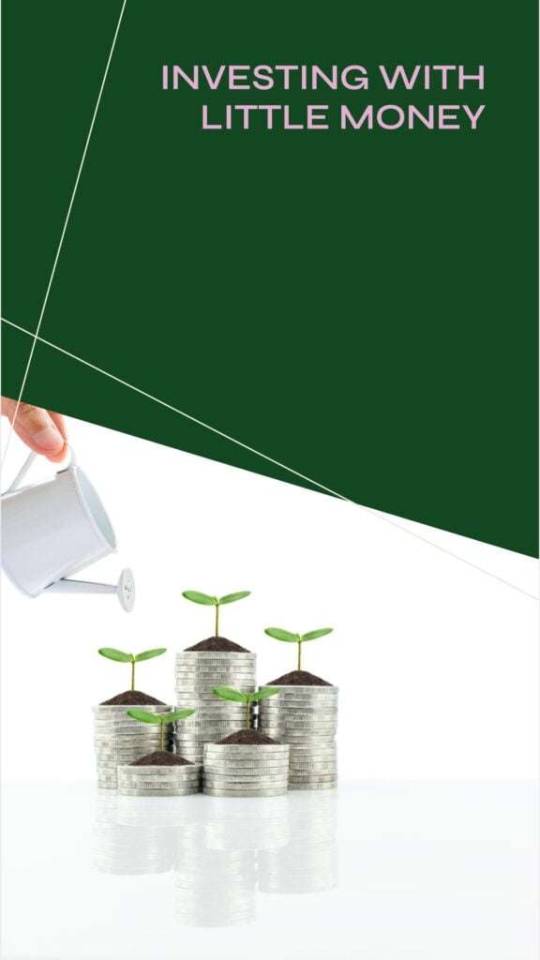
Q: What is the impact of international peace on modern security and trade?
A: International peace has a significant impact on modern security and trade. When nations are at peace with each other, it creates a resilient environment that safeguards economic and national security. It promotes stability, allowing for the growth of prosperity and the smooth functioning of investment and trade.
Q: How does international peace affect supply chains?
A: International peace is essential for the smooth operation of supply chains. It reduces the risk of disruption caused by conflicts or potential adversaries. When countries are at peace, supply chains can function efficiently, ensuring the timely delivery of goods and facilitating economic growth.
Q: What role does international peace play in the overall strategy of nations?
A: International peace is a vital component of the overall strategy of nations. It helps create a favorable environment for economic growth and prosperity. Countries that prioritize peace and security are more likely to attract investment, establish successful trade partnerships, and maintain stability in various sectors.
Q: Is international peace influenced by geopolitical tensions?
A: Yes, international peace can be influenced by heightened geopolitical tensions. When there are ongoing disputes or conflicts between nations, it poses a threat to peace and security. Effective diplomacy and peaceful resolutions are necessary to mitigate the risks of escalation and move towards a peaceful coexistence.
Q: How does international peace impact the resilience of economies?
A: International peace enhances the resilience of economies. By avoiding conflicts, countries can focus on building strong economic foundations, diversifying their industries, and creating opportunities for growth. Read the full article
#casestudies#coldwars#defensestocks#economicresilience#geopolitics#GeorgeSoros#globalconflicts#gold#healthcarestocks#internationalpeace#Investing#policymaking#preciousmetals#RayDalio#realestate#secureinvestments#silver#supplychains#technologydeployment#WarrenBuffett
0 notes
Text
Wagner Group Chief Killed in Plane Crash: What is Wagner group?"
youtube
#WagnerGroup#Prigozhin#PrivateMilitaryCompany#RussiaNews#GlobalSecurity#ConflictNews#Geopolitics#PlaneCrash#Assassination#RussianGovernment#WagnerChief#YevgenyPrigozhin#WagnerGroupNews#PrivateMilitary#GlobalConflicts#SecurityThreat#IntelligenceAssessment#PoliticalIntrigue#BreakingNews#WorldNews#Youtube
0 notes
Text
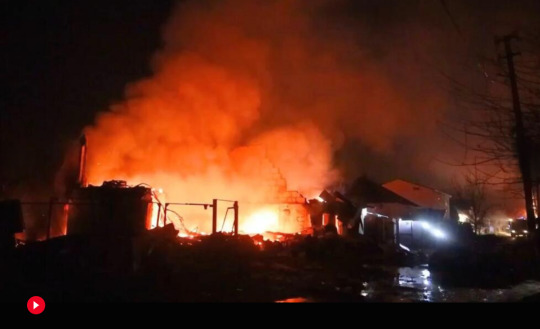
Ukrainians expect Russia to launch a fresh offensive to strengthen its negotiating position
KYIV, Ukraine — Russian forces are gearing up for a new military offensive in the coming weeks, aiming to intensify pressure on Ukraine and bolster the Kremlin’s leverage in ceasefire negotiations, according to Ukrainian government and military analysts.
The offensive could provide Russian President Vladimir Putin with a strong incentive to stall peace talks, prioritizing territorial gains over meaningful negotiations, Ukrainian officials warned this week. They reiterated their stance that Russia remains unwilling to engage in genuine efforts to end the war.
#ukrainewar#russiaukraineconflict#putin#militaryoffensive#ceasefiretalks#kremlin#ukraine#russia#warnews#geopolitics#globalconflict#militarystrategy#eastern europe#negotiations#worldnews
6 notes
·
View notes
Text
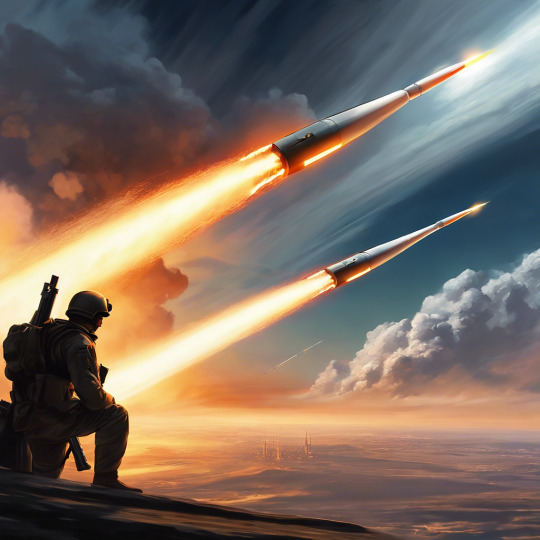
The Oreshnik Missile: A Game-Changer for Global Security
Russia’s recent use of the Oreshnik missile in Ukraine has sent shockwaves through global security. This intermediate-range hypersonic missile, capable of speeds up to Mach 10, is a technological leap that renders current defense systems ineffective. With its precision and range, it threatens much of Europe and exemplifies Russia’s growing military power.
As a nuclear-capable weapon, the Oreshnik missile represents a new frontier in warfare, reshaping power dynamics across the globe. Its deployment marks a shift in military strategies, compelling Western nations to reevaluate their defense capabilities in the face of Russia’s advanced weapons technology.
The Oreshnik is not just a weapon—it’s a symbol of the changing tides in global geopolitics. The world is watching as new military challenges arise and alliances are tested.
#OreshnikMissile#Russia#military#globalconflict#HypersonicTechnology#MilitaryInnovation#GlobalSecurity#geopolitics#Defence#UkraineWar
2 notes
·
View notes
Photo

Discover the magic of slow travel! Embrace more meaningful journeys by immersing yourself deeply in new cultures and environments, getting a true taste of each destination's unique flavor. 🌍✨ #SlowTravel #CulturalImmersion #SustainableTourism #TravelDeep #GlobalExploration #AuthenticExperiences
0 notes
Text
World War II, the deadliest conflict in history, reshaped the world and involved over 30 nations. Beginning in 1939 with the aggressive expansion of Adolf Hitler and the Nazi regime, it brought unparalleled devastation. More than 70 million soldiers fought with immense courage, while countries like Switzerland and Sweden remained neutral. The Holocaust, one of history’s darkest…
0 notes
Text
Greenpeace Activists Disrupt Fossil Fuel Conference

Greenpeace Activists Target Fossil Fuel Meeting
In a daring move, Greenpeace Italy's activists disrupted a golf game that was part of the OMC Med Energy Conference & Exhibition in Ravenna, Italy, where fossil fuel executives and ministers from Mediterranean countries convened. Their disruptive protest aimed to hold fossil fuel companies accountable for the climate crisis and conflicts they perpetuate in their relentless pursuit of profit. Dressed as Dinosaurs, Activists Convey a Strong Message Early in the morning, activists from Belgium, Croatia, France, Germany, Hungary, Italy, Slovakia, and Spain, clad in dinosaur costumes adorned with fossil fuel companies' logos, infiltrated the golf course where OMC delegates were playing. Their actions aimed to satirize the reckless and unsustainable practices of the fossil fuel industry. Simultaneously, other activists unfurled a banner with the words "Stop playing with our lives" and carried handheld banners in English, Italian, and French, bearing messages like "End the age of fossil criminals," "Oil & gas = War and conflicts," and "End fossil crimes."
Fossil Fuel Industry Linked to Climate Crisis and Conflicts
Anna von Gall, Greenpeace Germany's project leader for Climate for Peace, emphasized the global connection between fossil fuels, militarization, and conflicts. She pointed out that fossil fuel companies play a pivotal role in driving the climate crisis and fueling wars and conflicts in their pursuit of oil and gas. Holding them accountable for the devastation they cause is imperative for achieving a peaceful transition to sustainable energy. Fossil Fuel Companies Belong to the Past Chiara Campione, Head of the Climate Unit for Greenpeace Italy, drew an analogy between fossil fuel companies and dinosaurs, declaring that they belong to the past. She lamented the consequences of climate chaos borne by millions while oil and gas executives prioritize profits over people and the planet. Campione called for an end to the age of fossil fuels and urged governments, legislators, and the courts to hold the industry accountable and compel them to cease drilling, take responsibility, and make amends for the havoc they've wrought.
Fossil Fuels and Geopolitical Conflicts
The extraction of fossil fuels, such as gas and oil, along with the development of fossil fuel infrastructure, serves to promote militarization and stoke geopolitical conflicts on a global scale. Greenpeace Italy's recent report on the Eastern Mediterranean gas pipeline project highlighted how states in the region heavily invest in armament to safeguard their maritime interests and protect existing and future fossil fuel projects. Disputes over maritime borders and fossil fuel exploitation in the EastMed basin have even led to the deployment of military vessels. The Role of Russian Gas and Oil in Conflict Over the past year, the European Union's dependence on Russian gas and oil played a significant role in Russia's military aggression against Ukraine, financially supporting the invasion. Despite discussions about energy savings, efficiency, and renewables, Europe's political priorities have focused on maintaining fossil fuel flows through new partners, overlooking the geopolitical and environmental risks involved. Lessons from Europe's reliance on unreliable regimes and the historic association of fossil fuels with conflict have largely gone unheeded.
Greenpeace's Call for Accountability
Greenpeace is resolutely calling on fossil fuel companies to halt their activities that exacerbate the climate crisis and their involvement in new fossil fuel projects. They must cease investing in and developing all fossil fuel infrastructure, taking full responsibility. The rush for oil and gas has been inciting conflicts and increasing the need for military defense of fossil fuel assets. It's a call for accountability and a shift toward sustainable energy that can't be ignored. Sources: THX News & Greenpeace. Read the full article
#climatecrisis#Dinosaur-cladactivists#Endfossilfuelimpact#EU'sRussiangasdependence#Fossilfuelaccountability#fossilfuelconference#fossilfuelindustry#Fossilfuel'sclimateeffect#Geopoliticalconflicts#globalconflicts#GreenpeaceActivists#Greenpeaceactivistsprotestfossilfuelconference#Oilandgasdisruption#OMCconference#Russiangas#Sustainableenergytransition
0 notes
Text
American Views on Foreign Conflicts: Should the US Intervene for National Security? #Americanattitudes #foreignconflicts #globalconflicts #IsraeliPalestinianconflict #nationalsecurity #partyaffiliation #SyrianCivilWar #UnitedStatesintervention #USallies #usmilitary
#Politics#Americanattitudes#foreignconflicts#globalconflicts#IsraeliPalestinianconflict#nationalsecurity#partyaffiliation#SyrianCivilWar#UnitedStatesintervention#USallies#usmilitary
0 notes
Text
The Best Investment Options During Global Conflicts and Cold Wars
1. Why is it important to invest during global conflicts and cold wars? 2. How can alliances and partnerships help secure your investments? 3. What are the best investment options during global conflicts and cold wars? 4. How can defense stocks be a stable investment during global conflicts? 5. The importance of investing for the long term during cold wars Case Study Q: What is the impact of international peace on modern security and trade? Q: How does international peace affect supply chains? Q: What role does international peace play in the overall strategy of nations? Q: Is international peace influenced by geopolitical tensions? Q: How does international peace impact the resilience of economies? Q: What is the role of international organizations in promoting international peace? Q: How does international peace contribute to the security of cyberspace? Q: Can the outbreak of conflicts impact international trade? Q: What is the relationship between international peace and the deployment of new technologies? Q: How does international peace impact policymaking? Global conflicts and cold wars can create economic and geopolitical uncertainties that can significantly impact investments. However, it is important to consider investing during these periods as it can offer various advantages and opportunities for financial growth and stability.
1. Why is it important to invest during global conflicts and cold wars?
1.1 Safeguarding your investments During times of global conflicts and cold wars, there is a higher risk of economic and political upheaval. By investing in secure assets, you can better safeguard your investments and minimize potential losses. 1.2 Building resilience in your portfolio Investing during global conflicts and cold wars allows you to build resilience in your portfolio. Diversifying your investments across different sectors and asset classes can help mitigate risks and protect your wealth. 1.3 Strengthening your economy amidst crisis Investments during global conflicts and cold wars can strengthen your economy by providing stability and growth. Your investments contribute to the overall Gross Domestic Product (GDP) and support economic development despite the challenging circumstances.
2. How can alliances and partnerships help secure your investments?
2.1 Investing in sectors with strong alliances Choosing investment options in sectors that have strong alliances and partnerships can help secure your investments. Companies that collaborate internationally and have a strong network of allies are more likely to weather geopolitical uncertainties. 2.2 Leveraging the power of international cooperation International cooperation is crucial during times of global conflicts and cold wars. By investing in industries that heavily rely on export and benefit from international cooperation, you can capitalize on the stability and growth that these alliances provide. 2.3 The role of the private sector in safeguarding investments The private sector plays a vital role in safeguarding investments during global conflicts and cold wars. By investing in companies that prioritize research and development, intellectual property protection, and have the capacity to withstand economic shocks, you can secure your assets.

3. What are the best investment options during global conflicts and cold wars?
3.1 Investing in precious metals like Gold and Silver Precious metals like Gold and Silver are considered safe-haven assets during times of geopolitical tensions. These metals have a long history of retaining their value and can act as a hedge against inflation and currency fluctuations. 3.2 Real estate as a secure investment during geopolitical tensions Real estate investments are often viewed as secure during global conflicts and cold wars. Investing in properties can provide both financial stability and rental income, making it an attractive option for long-term investors. 3.3 Healthcare stocks as a defensive investment Healthcare stocks can be a defensive investment during times of global conflicts and cold wars. Regardless of the geopolitical climate, healthcare remains an essential industry. Investing in companies in this sector can provide stability and potential growth.


top 10 startup mistakes
4. How can defense stocks be a stable investment during global conflicts?
4.1 The long-term prospects of defense stocks Defense stocks can offer stability and growth potential during global conflicts and cold wars. Governments tend to prioritize defense spending to ensure national security, making defense companies a stable investment option. 4.2 Capitalizing on international peace and cooperation During periods of international peace and cooperation, defense stocks can experience growth. As tensions ease and countries focus on rebuilding relationships, defense companies can benefit from increased defense budgets and cooperation. 4.3 Boosting your portfolio with investments in the defense sector Investing in the defense sector can provide diversification and stability to your portfolio. Defense companies often have long-term contracts and government support, making them a reliable investment during global conflicts and cold wars.

5. The importance of investing for the long term during cold wars
5.1 Understanding the impact of global challenges on investments Investing for the long term during cold wars requires a deep understanding of the impact of global challenges on investments. It is crucial to analyze the geopolitical climate, economic trends, and potential risks to develop a resilient investment strategy. 5.2 Complementing your investment strategy with long-term goals Investing for the long term allows you to align your investment strategy with long-term goals. By focusing on stable assets and sectors that thrive during cold wars, you can capitalize on potential growth opportunities while managing risks. 5.3 Exploring investment opportunities in sectors that thrive during cold wars Some sectors tend to thrive during cold wars, such as technology, healthcare, and defense. These sectors often benefit from increased government spending and advancements in technologies. Exploring investment opportunities in these sectors can lead to long-term financial growth.

How to Achieve Real Estate Success With No Money
Case Study
1: Warren Buffett and the Art of Long-Term Value Investing Warren Buffett, often referred to as the "Oracle of Omaha," is one of the most renowned investors in the world. His investment philosophy is deeply rooted in the principles of long-term value investing, which has allowed him to navigate through numerous global conflicts and economic crises. Background: - Warren Buffett's investment journey began in the 1950s, during the Cold War era, and he faced various geopolitical uncertainties over the years. - He is the chairman and CEO of Berkshire Hathaway, a multinational conglomerate holding company with investments in various industries. Key Strategies: - Long-Term Perspective: Buffett is known for his unwavering commitment to long-term investing. He famously said, "Our favorite holding period is forever." This approach has helped him weather market volatility during global conflicts. - Diversification: Buffett has built a diversified portfolio of companies in various sectors, reducing the risk associated with concentrated investments. - Value Investing: He seeks undervalued stocks and businesses with strong fundamentals, even during turbulent times. This strategy helped him capitalize on opportunities when others were fearful. Success Story: During the 2008 financial crisis, one of the most significant global economic downturns in recent history, Warren Buffett made some shrewd investments. He injected $5 billion into Goldman Sachs, which was struggling at the time, in exchange for preferred stock. This move not only supported a major financial institution but also yielded substantial returns as the market recovered. Buffett's ability to stay calm during tumultuous times, combined with his disciplined approach to value investing, serves as a remarkable case study for investors seeking to navigate global conflicts and cold wars successfully. 2: George Soros and the Power of Adaptive Strategies George Soros, a prominent hedge fund manager and philanthropist, is renowned for his ability to adapt his investment strategies to changing global circumstances. Background: - Soros founded the Quantum Fund in 1973 and actively managed it through various global conflicts and financial crises. Key Strategies: - Adaptive Investing: Soros is known for his theory of "reflexivity" in financial markets, where he believes that investor sentiment and market conditions are interconnected. He adapts his strategies based on evolving situations. - Global Macro Investing: Soros takes a top-down approach to investing, focusing on macroeconomic factors and political developments. - Risk Management: He emphasizes the importance of risk management and setting stop-loss orders to limit potential losses. Success Story: Soros is famous for his shorting of the British pound in 1992, a trade known as "Black Wednesday." He bet against the pound's stability in the European Exchange Rate Mechanism, capitalizing on the UK's economic struggles. His successful trade led to substantial profits and is still studied by investors and economists today. Soros' case study highlights the significance of adaptability, global awareness, and calculated risk-taking during times of global conflicts and economic uncertainty. Case Study 3: Ray Dalio and the Principles of All-Weather Portfolios Ray Dalio, the founder of Bridgewater Associates, one of the world's largest hedge funds, is a proponent of creating "all-weather" investment portfolios that can withstand various economic and geopolitical conditions. Background: - Dalio's investment career spans decades, during which he encountered numerous global conflicts and economic crises. Key Strategies: - Diversification: Dalio emphasizes the importance of diversifying across asset classes to reduce risk. He advocates for a balanced portfolio that includes stocks, bonds, and alternative investments. - Risk Parity: He pioneered the concept of risk parity, which allocates investments based on their risk rather than traditional market capitalization weightings. - Scenario Analysis: Dalio and his team conduct extensive scenario analysis to prepare for various economic and geopolitical scenarios. Success Story: One of the key takeaways from Dalio's approach is the performance of Bridgewater's "All Weather" fund during the 2008 financial crisis. While many investors suffered substantial losses, this fund remained stable due to its diversified and risk-balanced nature. Dalio's case study underscores the importance of building resilient portfolios that can navigate global conflicts and economic downturns while achieving consistent returns.






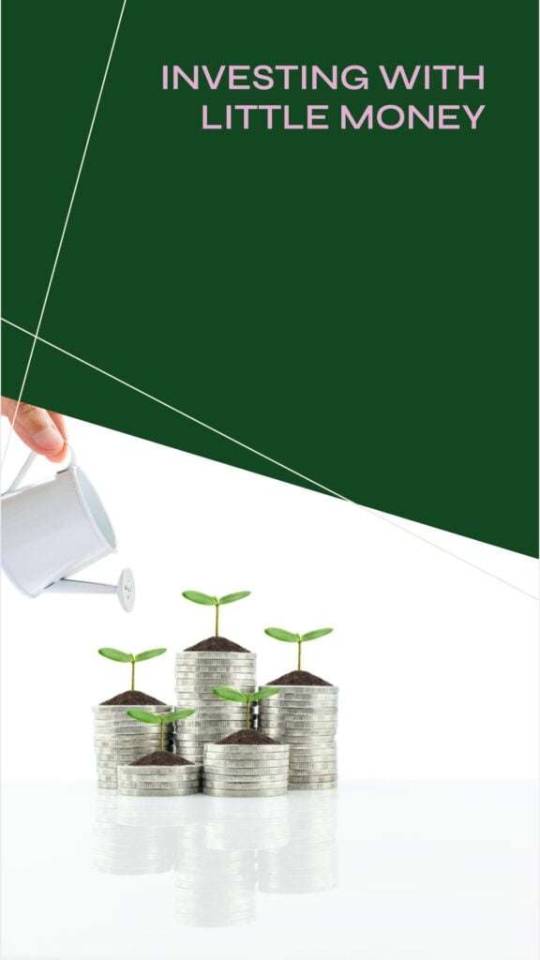
Q: What is the impact of international peace on modern security and trade?
A: International peace has a significant impact on modern security and trade. When nations are at peace with each other, it creates a resilient environment that safeguards economic and national security. It promotes stability, allowing for the growth of prosperity and the smooth functioning of investment and trade.
Q: How does international peace affect supply chains?
A: International peace is essential for the smooth operation of supply chains. It reduces the risk of disruption caused by conflicts or potential adversaries. When countries are at peace, supply chains can function efficiently, ensuring the timely delivery of goods and facilitating economic growth.
Q: What role does international peace play in the overall strategy of nations?
A: International peace is a vital component of the overall strategy of nations. It helps create a favorable environment for economic growth and prosperity. Countries that prioritize peace and security are more likely to attract investment, establish successful trade partnerships, and maintain stability in various sectors.
Q: Is international peace influenced by geopolitical tensions?
A: Yes, international peace can be influenced by heightened geopolitical tensions. When there are ongoing disputes or conflicts between nations, it poses a threat to peace and security. Effective diplomacy and peaceful resolutions are necessary to mitigate the risks of escalation and move towards a peaceful coexistence.
Q: How does international peace impact the resilience of economies?
A: International peace enhances the resilience of economies. By avoiding conflicts, countries can focus on building strong economic foundations, diversifying their industries, and creating opportunities for growth. Read the full article
#casestudies#coldwars#defensestocks#economicresilience#geopolitics#GeorgeSoros#globalconflicts#gold#healthcarestocks#internationalpeace#Investing#policymaking#preciousmetals#RayDalio#realestate#secureinvestments#silver#supplychains#technologydeployment#WarrenBuffett
0 notes
Text

SYRIA'S COLLAPSE - GLOBAL GEOPOLITICS SHIFTS
https://rumble.com/v63udky-syrias-collapse-global-geopolitical-shifts.html
The fall of Syria's Assad regime after 14 years of conflict, driven by support for jihadist groups from Turkey, the US, and Israel, marks a seismic shift in Middle Eastern geopolitics. As Syria fragments into zones controlled by Turkey, Kurdish forces, Israel, US-backed groups, and Russia, questions arise about the viability of Syria as a nation-state and the potential emergence of entities like Kurdistan. The collapse also weakens allies like Russia and Iran, while the US risks deepening entanglement in the region. My personal experiences in Syria highlighted the stark contrast between its people’s hospitality and the country’s portrayal in global media. Historically an artificial construct born from WWI, Syria’s instability reflects the challenges of imposed borders. With attention potentially turning to Iran next, the region faces an uncertain future, with global powers jockeying for influence and ordinary Syrians bearing the brunt of the turmoil.
#Syria#MiddleEast#Geopolitics#AssadRegime#GlobalConflict#Kurdistan#Russia#Iran#Turkey#Israel#USForeignPolicy#History#InternationalRelations#NationBuilding#WarAndPeace#GlobalShifts#GeopoliticalAnalysis#WorldAffairs#PoliticalInstability#SyriaCrisis#MiddleEastPolitics
0 notes
Text
youtube
#Who Are the Syrian Rebels? 🤔#Aleppo#Syria#MiddleEast#SyrianConflict#SyrianCivilWar#RebelForces#SyriaCrisis#WarInSyria#SyrianWar#Political Context:#Geopolitics#GlobalConflict#MiddleEastPolitics#WorldNews#SyrianOpposition#RevolutionOrWar#PoliticalTensions#Damascus#SyrianHistory#ISISConflict#KurdishForces#AssadRegime#GlobalImpacts#Activism and Advocacy:#SpeakForSyria#VoiceForTheVoiceless#SyriaSpeaks#PeaceNow#NoMoreWar
0 notes
Video
youtube
Top 5 - gefährlichsten Länder #shorts
Die Top 5 der gefährlichsten Länder der Welt zeichnen sich durch politische Instabilität, Konflikte und hohe Kriminalitätsraten aus. Länder wie Afghanistan, Syrien oder Somalia stehen auf dieser Liste und stellen große Herausforderungen für die Sicherheit und Lebensqualität ihrer Bevölkerung dar. Sie verdeutlichen die Notwendigkeit globaler Friedensbemühungen und humanitärer Hilfe.
#youtube#WorldsMostDangerousCountries GlobalConflict SafetyMatters TravelAdvisory DangerZones PeaceAndStability HumanitarianAid CrisisRegions Top5Dan
0 notes